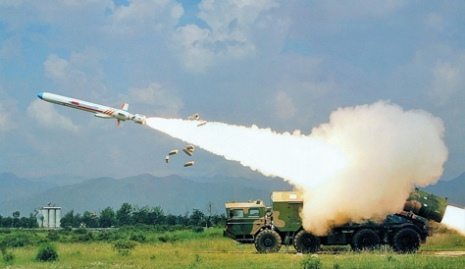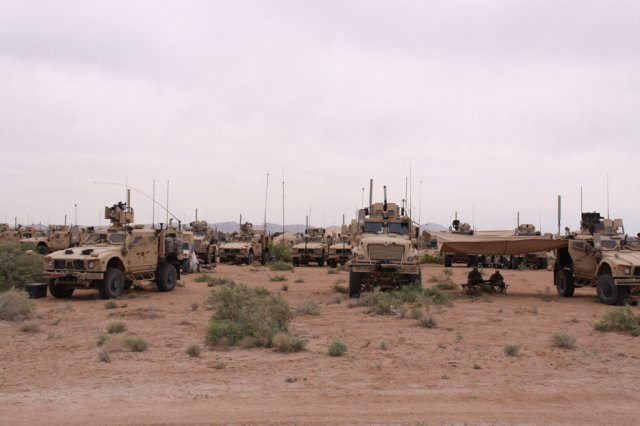The spike in violence in Syria has triggered alarm bells in Jordan that it could be dragged into the conflict with “severe” repercussions, analysts say.
Watching the unrest in neighbouring Syria with great concern, Jordan’s King Abdullah II as well as government officials said security along the northern border had been tightened.
“Jordan is closely monitoring developments in Syria. We will guarantee that they will not have any security, humanitarian or social impact on the kingdom,” Prime Minister Fayez Tarawneh said late on Monday as he and the army chief visited Syrian refugees in the north.
Their concerns have been heightened due to some 140,000 Syrians already having fled across the border into Jordan, creating a financial and logistical burden for the country.
“The country will do all what it takes to preserve national security and protect citizens, while at the same considering the circumstances of our Syrian refugee brothers,” Tarawneh said.
Security concerns also extend to Syria’s arsenal of chemical and biological weapons.
According to sources close to the government, “daily meetings are being held to examine the possibility of dispatching special forces (to Syria) if and when the Syrian regime falls to secure its chemical and biological weapons.”
This however could not be immediately confirmed by government officials.
Analyst Oreib Rintawi, who heads the Al-Quds Centre for Political studies, said that “under the current circumstances” it is possible Jordan would resort to such action but he cautioned that this would be a “dangerous” step.
“Amman needs an Arab and international umbrella. Otherwise, the repercussions will be severe,” Rintawi told AFP.
The king has warned that in the event of a descent into all-out war, chemical weapons could fall into the hands of extremists, including certain rebel groups.
The Syrian government said Monday that Damascus would only use chemical weapons in case of a foreign attack as fears have been rising that President Bashar al-Assad regime might be prepared to use these arms in the repression of a 16-month uprising.
“I am not sure of this alleged arsenal and I am not sure if there are real Jordanian fears. I think all of this is just an excuse for the West to draw Jordan into the Syrian conflict,” said Rintawi.
“We need to be careful. The United States and others claimed Iraq had all kinds of unconventional weapons just to invade the country. They found nothing and look at Iraq now.”
Little is known about Syria’s chemical capabilities as the country is not a member of the Organisation for the Prohibition of Chemical Weapons, which requires member states to be transparent and destroy stockpiles.
“If Jordan interferes, it will be doing so on behalf of the United States and Israel, and this we do not need. There are clear indications Jordan could facilitate a military intervention in Syria,” political analyst Labib Kamhawi said.
“Jordan’s role should be focused on humanitarian aspects and on helping the Syrian refugees. It should not be part of any military action, particularly that this talk about chemical and biological weapons is nothing but a pretext to attack Syria.”
Israel said on Sunday it was concerned that chemical weapons might land in the hands of the Lebanese Shiite militia Hezbollah, an ally of Syria.
“I think Jordan’s location, the capabilities of its army and Amman’s intelligence services make the country a strong candidate to help secure these alleged chemical arms,” Mohammad Masri, analyst at the University of Jordan’s Centre for Strategic Studies, told AFP.
According to risk consultancy Maplecroft, the “Eager Lion” military exercise held in Jordan in May with the participation of the US and 18 other countries “included a strong focus on securing chemical and biological weapons.”
“As the conflict escalates, it cannot be altogether discounted that the regime will consider using chemical weapons,” it said.
Citing US and Arab officials, the Wall Street Journal reported in March that “American and Jordanian military chiefs are jointly developing plans to secure what is believed a vast Syrian stockpile of chemical and biological weapons.”
Ordinary Jordanians do not hide their fears.
“We are already suffering from all types of problems here, like a bad economy, poverty, unemployment and corruption. Do we need more troubles? Can’t we just focus on the Syrian refugees?” said Khalil, 25, a university student.
“We are proud of our army, but we are not a superpower,” said Mohammad, a 33-year-old architect. “What if this plan … to secure Syrian weapons fails for one reason or another? What’s going to happen to us?”











